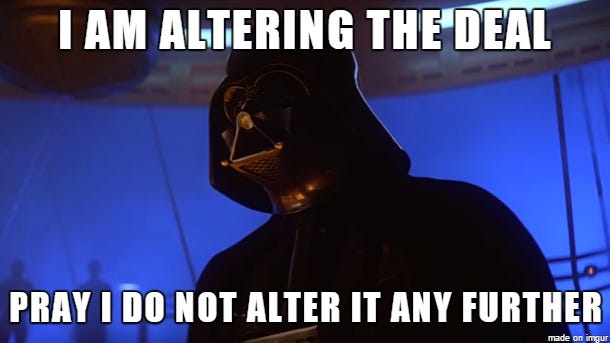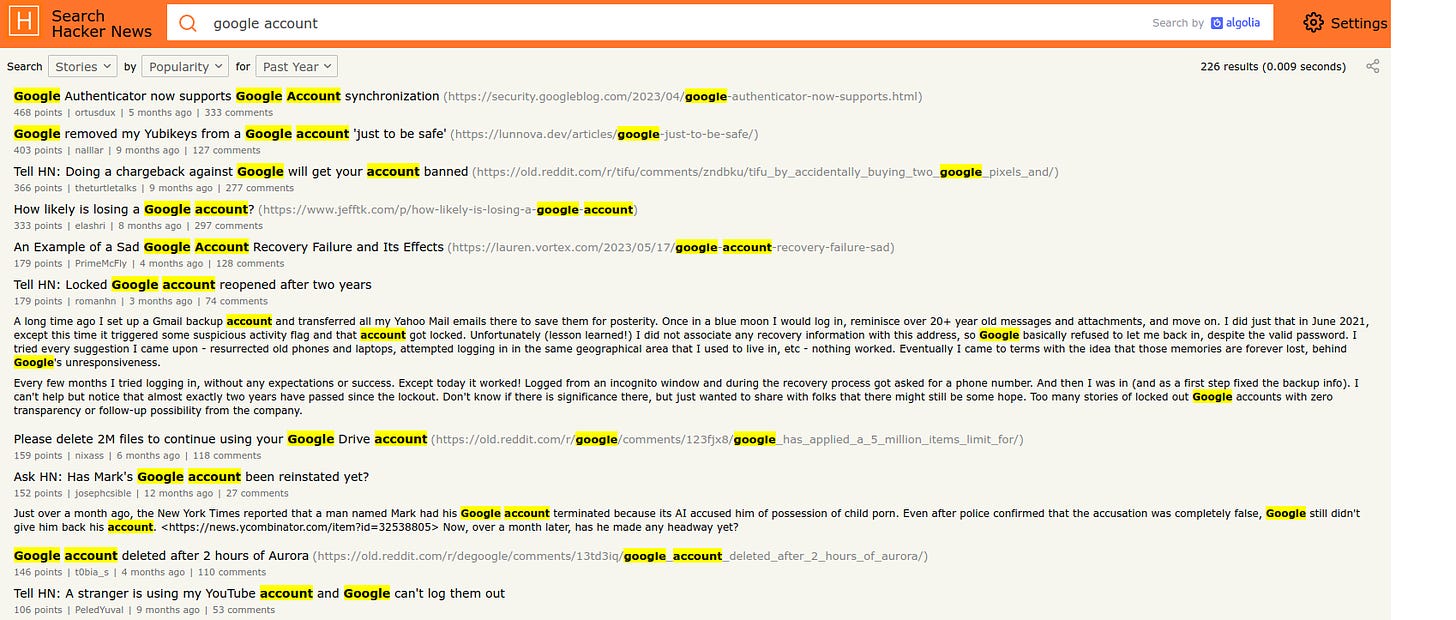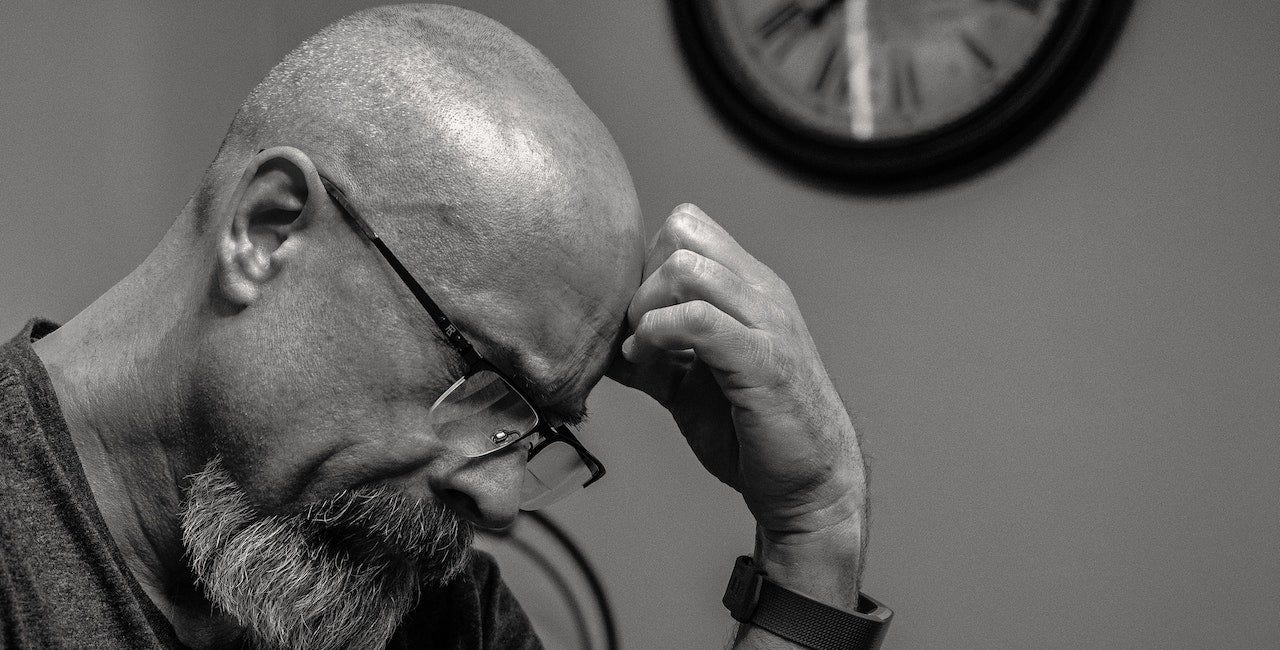What am I willing to lose? It's a question that's been on my mind more and more lately, especially in the wake of the recent Unity game engine fiasco. For those whose livelihoods hang in the balance due to changes in Unity's terms of service, this question becomes increasingly pressing. Our world has undeniably shifted from ownership to subscription based models and terms of service agreements that feel more like renting than owning.
When a company we rely on, whether through acquisition or alterations to their terms of service, disrupts our user experience, there are usually three types of responses:
Outrage, often justified
Apologies on behalf of the company, citing their right to make money
"I told you so."
For those in the third camp, it's easy to dismiss the concerns when your livelihood or favorite tech stack isn't at stake, or when you never liked the company to begin with. But unless you're Richard M. Stallman, chances are you depend on proprietary tools or services that aren't easily replaceable at the drop of a hat. When companies make changes that adversely affect their users, it forces us into making hasty, critical decisions about our digital lives, and that just plain sucks. This will probably happen to all of us at some point.
In the book The Art of Happiness by The Dalai Lama and Howard Cutler, the Dalai Lama words about death and old age are particularly relevant here…
For example, you might consider things like old age and death as negative, unwanted, and simply try to forget about them. But eventually these things will come anyway. And if you‘ve avoided thinking about these things, when the day comes that any of these events occur, it will come as a shock causing unbearable mental uneasiness. However, if you spend some time thinking about old age, death, and these other unfortunate things, your mind will be much more stable when these things happen as you have already become acquainted with these problems and kinds of suffering and have anticipated that they will occur.
- Dalai Lama
We are being compelled to confront the reality that our digital lives, like our physical ones, are impermanent. The Dalai Lama's insight applies equally to unjustly banned PayPal accounts with money still on them, cherished childhood flash games now lost, or that amusing meme you once saw on Imgur, now deleted, as it does to our youth and corporeal form. Most of us never think about situations where we lose access to these services, and the pain of that loss is upsetting.
When I was younger, we used to say “the internet never forgets”. Yet, reality has proven otherwise. Websites disappear, hyperlinks break, and in some cases, entities actively remove their content from the web. WordPress has a strategy for this, and recently announced a 100 year plan to “secure your internet legacy” for the low, low price of $38,000. This time frame is minuscule in the grand scheme of things. I could write a shopping list on a piece of toilet paper, and it would last longer, and be far cheaper.
This also assumes that WordPress is still around in 100 years. Our oldest tech company that comes close to that mark is IBM, with 112 years under its belt if you include it’s time as the “Computing-Tabulating-Recording Company”. And I’m not sure that’s a very encouraging role model. So it remains to be seen which tech companies will become our King Arthur Flours, Jim Beams, and J.P Morgans. Or our Hermèses, Twinings, and Berettas for the Europeans.
So, what can we do to secure our digital lives and safeguard them? Is the solution to exclusively embrace open source software, enabling us to reclaim ownership of our data, establish email domains we control instead of relying on Gmail, employ open source operating systems like Linux or BSD, buy physical media such as books, CDs and Blu-rays, and maintain three backup storage options, including an offsite location in case of fire? Well, yes, it is. But this commitment demands three things from you:
A willingness and capability to assume responsibility for developing open-source software if it's abandoned, as it would be if a company discontinued a product or service
A desire to devote time into cobbling together solutions instead of using canned or industry standard tooling
The time to manage multiple backups, including the associated costs, to ensure they remain synchronized
But that is a lot of work. I’m a programmer and I know how to do all of these things, but that sounds like a huge pain in the ass even for me. I can only imagine how difficult it would be for others who where less technologically savvy, or who are starting from square one. So the way I see it, there are two options. Make like the Dalai Lama and dedicate time to contemplating the eventual demise of your digital footprint. This way, when companies inevitably fold, discontinue services, or alter agreements, your mind will be better equipped to cope, having already grappled with these concerns. Or shoulder the responsibility yourself to establish contingency plans for your digital services and ensure your data remains backed up. But this is actually a false dichotomy, and there is an alternative.
You should take steps to preserve your digital life by exploring open source alternatives (and or donating to them), or devising a strategy in the event the company controlling the product you rely on goes under or undergoes adverse changes. You should conduct "risk assessments" when evaluating new tools, particularly if they hold a monopoly on a service, and factor these considerations into your business model. Anything you don’t do this substantial effort for, you should recognize as something that may vanish unexpectedly, and inconveniently, into the digital abyss at some point.
In my case, the middle way for me is that I only invest this effort into a select few tools that I believe are important to me. I don’t have the time to do more than that. When I ask myself “What am I willing to lose?” The things that don’t get this treatment are always on my mind. For those I’ve accepted that one day they may be gone. If it turns out it was important, I only have myself to blame because I didn’t put in more effort preserving it. But I’m only allowed to have this harsh criticism of myself, because I put in this effort, and I reserve these feelings for me. I do not use my preparation as a way to indulge in feelings of schadenfreude when others are caught off guard. My heart goes out to the Unity developers who are being faced with a difficult decision, and anyone else who has experience as similar situation. I know that one day I might experience a similar crisis of technology, and I hope that I’ve prepared adequately. So dear reader, I know what I am willing to lose, how about you?
Call To Action 📣
If you made it this far thanks for reading! If you are new welcome! I like to talk about technology, niche programming languages, AI, and low-level coding. I’ve recently started a Twitter and would love for you to check it out. I also have a Mastodon if that is more your jam. If you liked the article, consider liking and subscribing. And if you haven’t why not check out another article of mine! Thank you for your valuable time.






